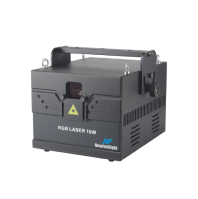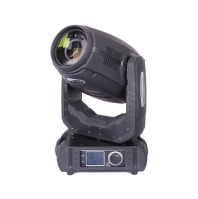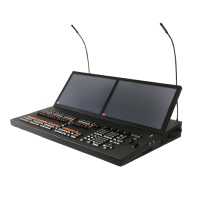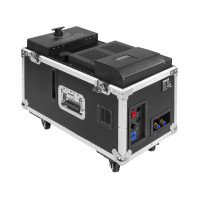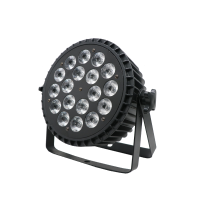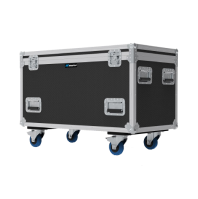Table of Contents
- What Is a Galvanometer in Laser Stage Lighting?
- Key Components of a Professional Galvo System
- What Are KPPS and KHZ?
- What Effects Can Galvos Create in Laser Stage Lighting?
- How Do Galvo Systems Work in Laser Stage Lights?
- How to Evaluate Galvo Specs in Laser Stage Lights
- Conclusion
The galvo (galvanometer) is an electric mirror system that guides the laser lights in stage lighting with exceptional precision. With a native frequency of 18–22kHz and speeds ranging from 15 to 60+ kpps, these advanced components have revolutionized modern stage lighting technology—yet remain a mystery to many event professionals. In this article, we’ll explore how modern galvo systems enable stunning effects like 3D mapping and real-time animation, forming the backbone of today’s lasers and lights experiences in concerts, clubs, and immersive installations.
What Is a Galvanometer in Laser Stage Lighting?
A galvanometer in laser stage lighting is a precision electromechanical device that forms the key control mechanism at the core of a professional laser lights system. The core function of a galvo system is simple: convert DMX signals into precise mirror movements.
When current flows through the coils, a magnetic field is generated that acts on the permanent magnets attached to the mirrors. This produces instantaneous rotational motion, with position accuracy reaching micro-radian levels. This superior precision allows us to create patterns, animations, and effects with detail and responsiveness unmatched by traditional lasers lights and LED-based technologies.
Key Components of a Professional Galvo System
Galvo Scanning Mirrors (X/Y Axes):
High-reflectivity, lightweight mirrors mounted perpendicularly to offer two-dimensional control.
Galvo Motor Types:
Voice Coil Galvos deliver exceptional speed for high-kpps applications.
Moving Magnet Designs offer greater durability for touring and mobile setups.
Driver Board:
The driver board contains a sophisticated closed-loop feedback system that monitors and adjusts mirror positions thousands of times per second.
A properly configured galvo system works in coordination with your laser light source, control software, and power supply to create a reliable lighting ecosystem—ideal for both fixed installations and touring edm laser lights setups.
What Are KPPS and KHZ? How Scanning Speed Defines Laser Performance
Before diving into the inner workings of galvo systems, let’s decode the key performance metrics.
What is kHz? Resonant Frequency of Galvos in Laser Stage Lighting
kHz (kilohertz) refers to the resonant frequency of the galvo—a critical spec indicating how many thousand times per second the system can naturally oscillate. Think of this as the “heartbeat” of the galvo, determining its response rate to changing signals.
Professional stage lighting and edm laser lights applications typically require galvos in the 18–22 kHz range—a sweet spot that balances speed and stability to deliver perfect visuals, even during high-motion performances.
What is KPPS? Speed Measurement for Galvo Systems
Kilo-points-per-second (kpps) is the performance metric that directly determines the visual quality of laser light shows. It measures how many thousand distinct positions a galvo can project per second (e.g., 60 kpps = 60,000 points at an 8° scan angle). This is key in creating high-resolution graphics and seamless beam effects found in premium lasers and lights installations.
KPPS vs. KHZ: What's the Difference?
Although both kHz and kpps relate to galvo performance, they measure fundamentally different aspects:
|
Aspect
|
kHz (Kilohertz)
|
kpps (Kilo-points per second)
|
|
What it measures
|
Galvo's inherent oscillation frequency
|
Real-world positioning ability
|
|
Technical Meaning
|
Max number of direction changes per second
|
Number of points drawn per second
|
|
Impact
|
System responsiveness & vibration resistance
|
Visual quality and pattern complexity
|
|
Beam Quality Relation
|
Higher kHz = stable beams in motion
|
Higher kpps = smoother animation
|
|
Typical Range
|
18–22 kHz for stage use
|
20–60 kpps depending on needs
|
Understanding this difference is crucial: High kHz provides a stable foundation; high kpps defines what you can build upon that foundation. A professional laser lights system excels in both for optimal results.
What Effects Can Galvos Create in Laser Stage Lighting?
Galvo-scanned laser lights have redefined what’s possible in stage lighting design, unlocking effects once thought to exist only in science fiction.
Real-Time Vector Graphics
With ILDA-compatible software, galvo systems can generate logos, text, fractals, and other vector images at over 5,000 points per second—transforming static stages into dynamic canvases, especially popular in edm laser lights performances and brand showcases.
Dynamic Beam Scanning
Galvo systems enable precise airborne effects such as:
Laser tunnels that appear to stretch into space
Fan effects and sweeping beams across audiences
Light cones creating immersive 3D environments
These are hallmarks of top-tier lasers and lights systems used in festivals, concerts, and mega clubs.
3D Laser Mapping
The most advanced use of galvo-controlled laser lights involves architectural 3D mapping. By combining multiple axes of control, designers create immersive laser light animations that can map structures in full depth—found in large-scale edm laser lights festivals and themed productions.
How Do Galvo Systems Work in Laser Stage Lights?
The seemingly magical effects of laser stage lights with galvos follow a technical workflow involving DMX input, voltage interpretation by the driver board, and real-time position corrections—ensuring your laser lights perform flawlessly even in dynamic or high-vibration environments.
How to Evaluate Galvo Specs in Laser Stage Lights
Key specs to watch:
Native Frequency (18–22 kHz): Optimal balance for high-speed performance
KPPS Rating:
Match complexity needs:
20 kpps = basic beams
30 kpps = text and logos
60+ kpps = detailed 3D animation
Thermal Safety Cutoff (≥85°C): Critical for long-term use in venues
Conclusion
Galvo systems are the hidden force behind today’s most immersive laser lights experiences. From animated brand visuals to complex lasers and lights synchronization in massive venues, the quality of your galvos defines your show’s potential. As a trusted laser light manufacturer, we help clients achieve extraordinary performances—from touring edm laser lights systems to fixed architectural installations—with maximum reliability and impact.







